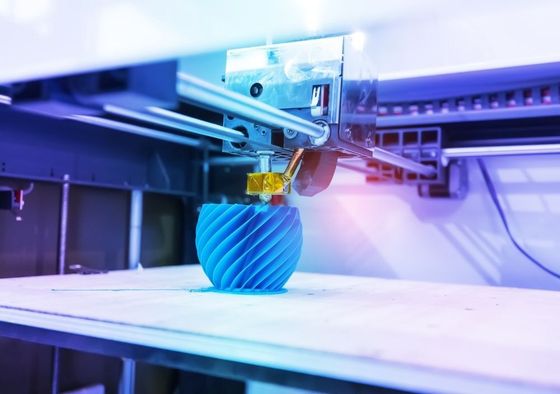Introduction
The 3D printing industry in Manchester is revolutionizing traditional manufacturing processes, paving the way for innovation, efficiency, and customization. As a city known for its industrial heritage, Manchester is leveraging modern technology to redefine how products are designed, produced, and delivered. This article explores the significant impact of manchester 3d printing on the future of manufacturing in the region.
A Historical Perspective
- Industrial Roots: Manchester’s history as a manufacturing powerhouse sets the stage for the integration of advanced technologies like 3D printing.
- Early Adoption: The adoption of 3D printing began in the early 2000s, primarily in prototyping and design. Over the years, its applications have expanded significantly.
Transforming Traditional Manufacturing
- Rapid Prototyping: 3D printing allows manufacturers to create prototypes quickly and cost-effectively. This accelerates the product development cycle, enabling faster time-to-market.
- Customization: With the ability to produce bespoke products at scale, manufacturers can cater to individual customer preferences, offering tailored solutions that were previously impractical or costly.
- Reduced Waste: Traditional manufacturing often involves significant material waste. In contrast, 3D printing is an additive process that uses only the necessary amount of material, promoting sustainability in manufacturing.
Key Industries Affected
- Aerospace: Manchester’s aerospace sector is leveraging 3D printing for lightweight component production, resulting in fuel savings and enhanced performance.
- Healthcare: Hospitals and medical device manufacturers in Manchester are using 3D printing to create custom implants and prosthetics, improving patient outcomes and reducing production times.
- Automotive: The automotive industry benefits from rapid prototyping and small-batch production of parts, allowing for greater flexibility and innovation in design.
Local Innovations and Startups
- Emerging Companies: A range of startups in Manchester is focusing on niche applications of 3D printing, from fashion to construction. These companies are pushing the boundaries of what’s possible with the technology.
- Collaborative Efforts: Collaborations between universities, research centers, and industry leaders are fostering innovation, leading to new materials and printing techniques that enhance manufacturing capabilities.

Economic Implications
- Job Creation: The growth of the 3D printing sector is generating new employment opportunities, requiring a skilled workforce proficient in design, engineering, and technology.
- Attracting Investment: Manchester’s focus on 3D printing is attracting investments from both local and international businesses, boosting the economy and enhancing its reputation as a manufacturing hub.
Challenges to Overcome
- Skill Gaps: As the industry grows, there is a need for training and education programs to equip the workforce with the necessary skills to operate and innovate within the 3D printing space.
- Regulatory Frameworks: The evolving nature of 3D printing technology poses challenges in terms of regulations and standards, which must be addressed to ensure safe and effective practices.
Future Outlook
- Continued Innovation: The future of manufacturing in Manchester is bright, with ongoing advancements in 3D printing technology expected to lead to even greater efficiencies and capabilities.
- Sustainability Initiatives: The focus on sustainable manufacturing practices will likely continue, with 3D printing playing a crucial role in reducing environmental impact and promoting circular economy principles.
Conclusion
Manchester’s 3D printing industry is not just shaping the future of manufacturing in the region; it is setting a precedent for global manufacturing trends. By embracing innovation, customization, and sustainability, the city is poised to remain at the forefront of this technological revolution. As the industry continues to evolve, Manchester will undoubtedly be a key player in defining the future landscape of manufacturing.